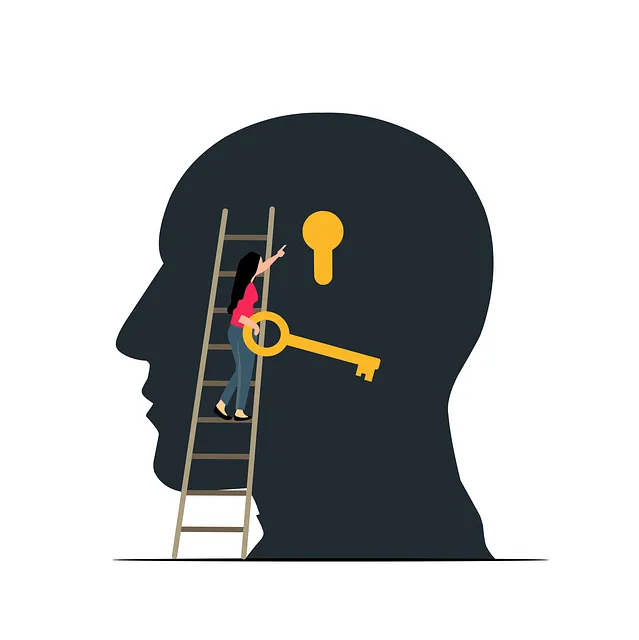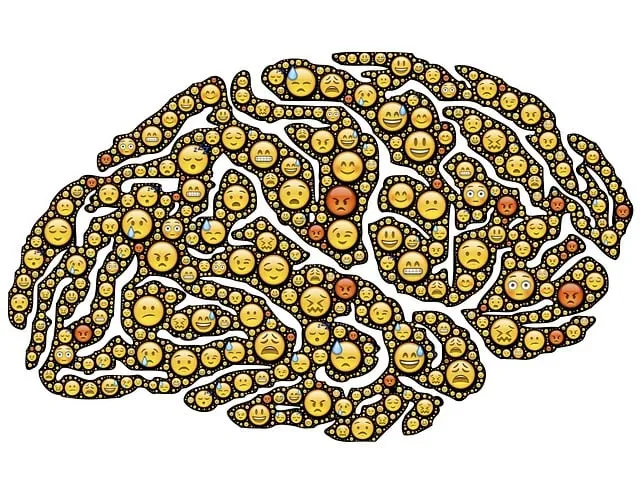Emotional Intelligence (EI), recognized as a vital component of mental wellness by Kaiser Permanente behavioral health services Boulder, comprises self-awareness, self-management, social awareness, and relationship management. Cultivating EI helps individuals understand and control emotions, fostering stronger relationships, improved communication, and better conflict resolution. Through evidence-based practices and specialized therapy programs, Kaiser Permanente Boulder enhances EQ with coping skills, emotion management techniques, mindfulness, empathy development, and social skills training. This comprehensive approach equips clients with tools for navigating life's challenges, promoting personal growth, and improving overall mental wellness in both personal and professional settings.
Emotional intelligence (EQ) is a powerful tool for personal growth and professional success. Understanding EQ involves recognizing and managing one’s own emotions, as well as understanding the feelings of others. This article explores various facets of emotional intelligence development, including strategies to enhance self-awareness and self-management, cultivating empathy, and integrating EQ into daily life and workspaces. Kaiser Permanente Behavioral Health Services Boulder plays a pivotal role in fostering these skills, offering valuable resources for personal transformation.
- Understanding Emotional Intelligence: A Foundation for Personal Growth
- The Role of Kaiser Permanente Behavioral Health Services Boulder in EQ Development
- Practical Strategies to Enhance Self-Awareness and Self-Management
- Cultivating Empathy: Building Connections and Relationships
- Integrating Emotional Intelligence into Daily Life and Workspaces
Understanding Emotional Intelligence: A Foundation for Personal Growth

Emotional intelligence (EI) is a fundamental aspect of personal and professional success, encompassing self-awareness, self-management, social awareness, and relationship management skills. Recognized as a key element in mental wellness by Kaiser Permanente behavioral health services Boulder, EI empowers individuals to understand and manage their own emotions, as well as recognize and respond appropriately to the emotions of others. This ability fosters stronger connections, enhances communication, and promotes effective conflict resolution—all vital components for personal growth and thriving relationships.
By cultivating emotional intelligence, folks can significantly reduce risks associated with mental health issues, such as depression prevention. It equips individuals with tools to navigate life’s challenges more effectively, thereby improving overall mental wellness. For mental health professionals, this is particularly pertinent; the Risk Assessment for Mental Health Professionals highlights the importance of EI in providing compassionate and competent care. Through emotional intelligence, professionals can create a supportive environment that encourages clients to explore and express their emotions openly, promoting healing and growth within the therapeutic process.
The Role of Kaiser Permanente Behavioral Health Services Boulder in EQ Development

Kaiser Permanente Behavioral Health Services Boulder plays a pivotal role in fostering and developing Emotional Intelligence (EQ) among individuals seeking support for their mental well-being. The services offered, including therapy programs and counseling sessions, are designed to empower clients with essential coping skills and strategies. Through various therapeutic approaches, they guide people in understanding and managing their emotions effectively, a cornerstone of EQ development.
The specialized teams at Kaiser Permanente Boulder utilize evidence-based practices such as Social Skills Training to enhance interpersonal relationships and communication. By participating in these programs, individuals can build stronger emotional connections, improve conflict resolution skills, and develop a deeper sense of empathy—all crucial aspects of enhancing one’s EQ. Their comprehensive approach ensures that clients gain valuable tools for navigating life’s challenges while fostering better emotional intelligence.
Practical Strategies to Enhance Self-Awareness and Self-Management

Building emotional intelligence (EI) is a transformative journey, and one of the cornerstones is cultivating self-awareness and self-management skills. At Kaiser Permanente behavioral health services Boulder, we emphasize practical strategies to empower individuals in understanding and managing their emotions effectively. This involves recognizing and accepting one’s feelings, thoughts, and triggers, which forms the basis of self-awareness.
Self-management techniques, such as mindfulness and stress reduction practices, are powerful tools. Engaging in regular meditation or deep breathing exercises can help individuals stay grounded, improve focus, and enhance their ability to respond calmly under pressure. Additionally, seeking feedback from trusted peers or participating in social skills training can offer valuable insights into one’s interpersonal interactions, fostering a more nuanced understanding of oneself within the context of relationships.
Cultivating Empathy: Building Connections and Relationships

Cultivating empathy is a cornerstone of emotional intelligence development, and it plays a pivotal role in fostering meaningful connections and relationships, as emphasized by Kaiser Permanente behavioral health services Boulder. This skill allows individuals to understand and share the feelings of others, creating a deeper sense of compassion and unity. By practicing active listening, asking open-ended questions, and paying attention to non-verbal cues, people can better navigate social interactions and build stronger bonds with peers, colleagues, and loved ones.
The impact of empathy extends beyond personal relationships; it is also a key component in various professional settings, including Mental Health Policy Analysis and Advocacy as well as Mental Wellness Coaching Programs Development. Empathetic individuals are often more effective in their roles due to their ability to connect with others on an emotional level, resolve conflicts, and promote a positive work environment. This, in turn, contributes to improved mental wellness and overall organizational success.
Integrating Emotional Intelligence into Daily Life and Workspaces

Integrating emotional intelligence into daily life and workspaces is a crucial step towards holistic well-being. At Kaiser Permanente behavioral health services Boulder, experts emphasize that cultivating emotional intelligence isn’t just about understanding feelings; it’s about applying this knowledge to enhance interactions and decision-making. By incorporating practices such as mindfulness and empathy into routine activities, individuals can significantly improve their relationships at work and home, fostering a more supportive and productive environment.
This integration goes beyond individual growth, impacting organizational culture as well. As previously mentioned, emotional intelligence plays a pivotal role in burnout prevention and emotional healing processes. In the workplace, this translates to reduced stress levels, increased job satisfaction, and better team dynamics. By prioritizing emotional regulation through training and support, organizations like Kaiser Permanente behavioral health services Boulder contribute to creating a healthier, more engaged workforce.
Emotional intelligence, a vital skill for personal growth and successful relationships, can be cultivated through various practices. As highlighted by Kaiser Permanente Behavioral Health Services Boulder’s role in EQ development, accessing professional resources and learning practical strategies are key steps toward enhancing self-awareness and self-management. By fostering empathy and integrating emotional intelligence into daily life and workspaces, individuals can create more meaningful connections and improve overall well-being.






